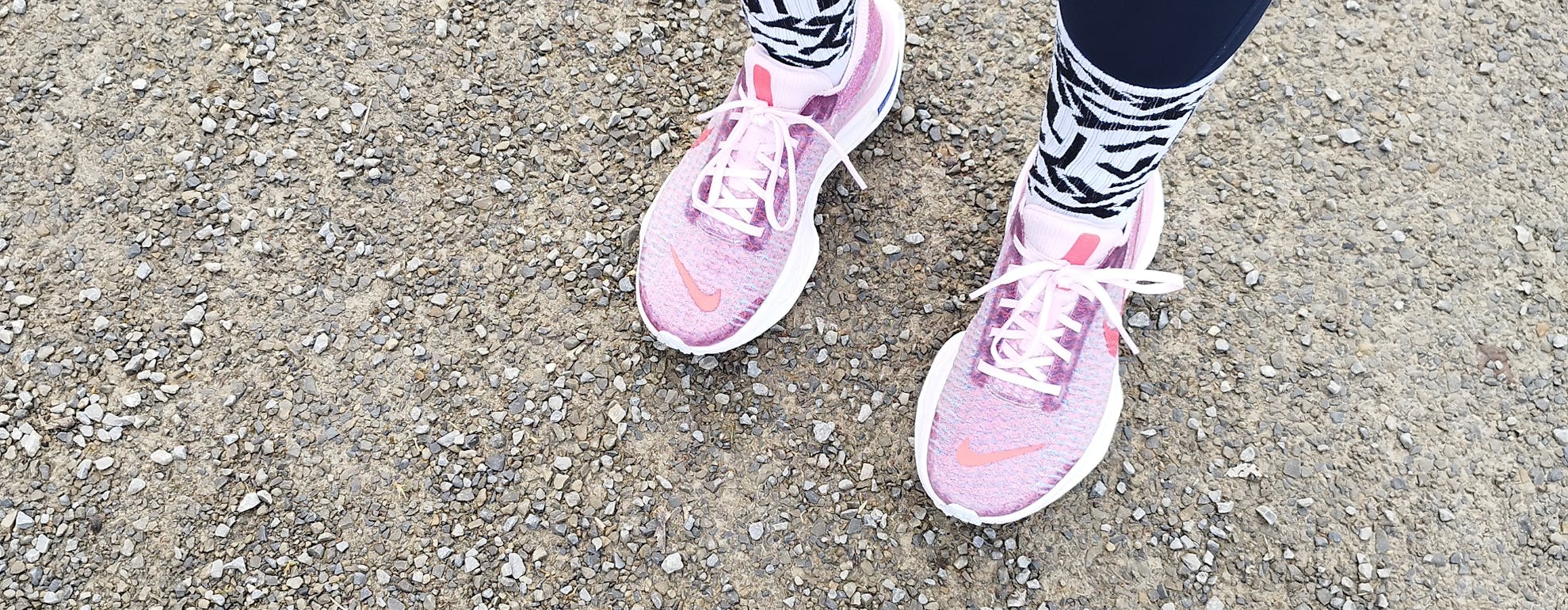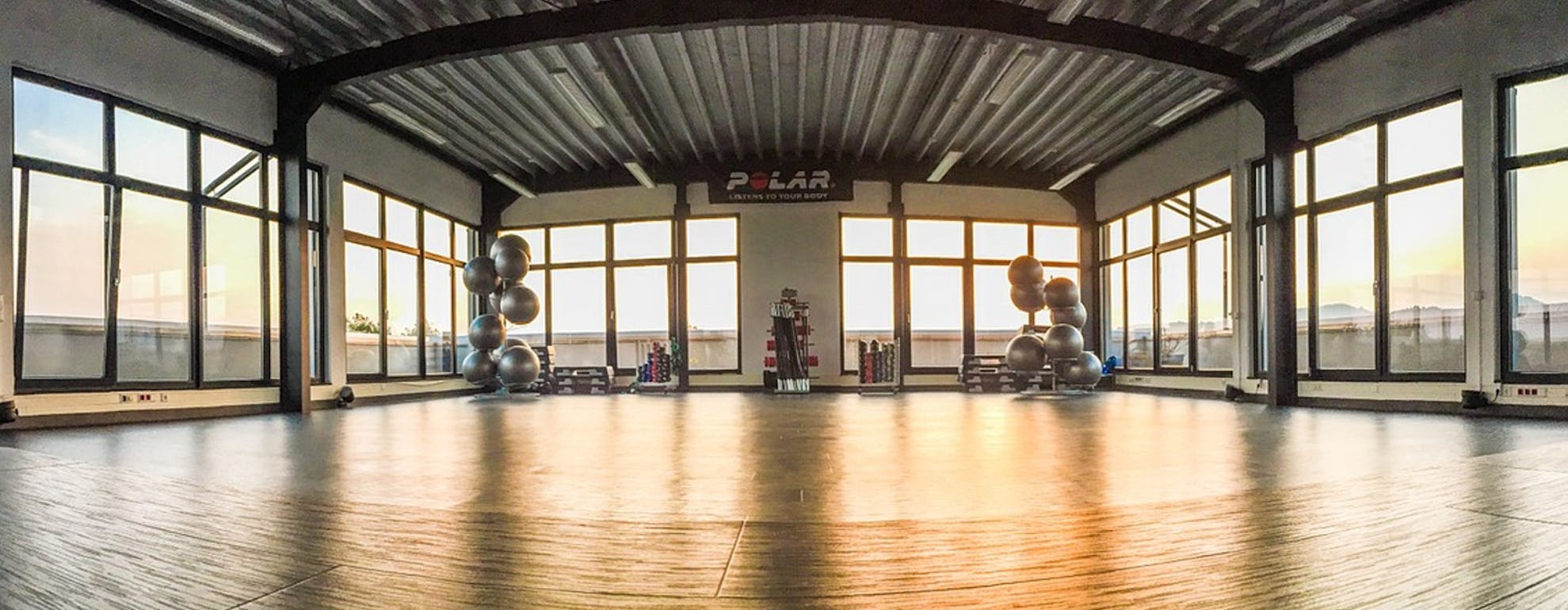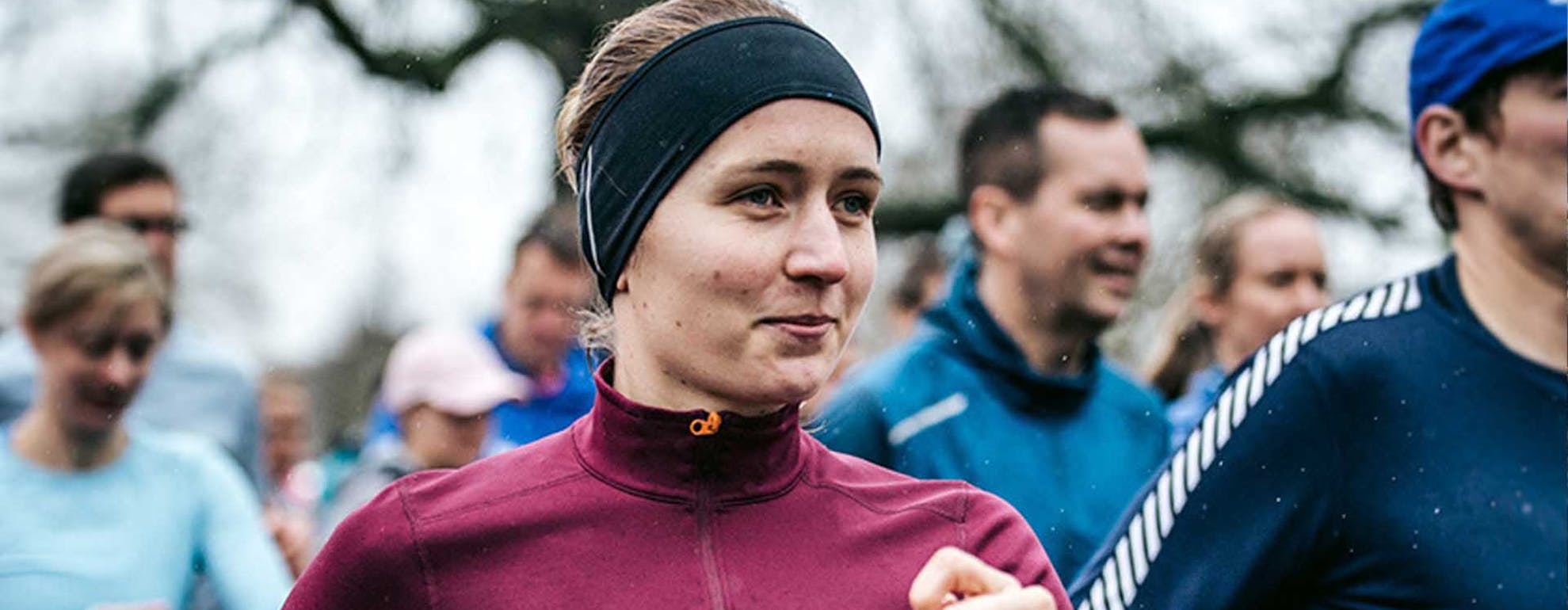
Training
Running during Pregnancy
Many things change throughout pregnancy, both physically and emotionally. Suddenly you are no longer responsible only for yourself, but also for another human being who is growing inside you and, of course, you don't want to do anything wrong during this time. Our SportsShoes ambassador Jana talks about her experience running whilst she was pregnant.
ㅤ
That's what happened to me when I found out I was pregnant and I asked myself, what am I allowed to do now and what should I not do? As a passionate runner, one of my first questions regarding what was allowed was, of course, whether I could continue running and what I should keep in mind. My gut feeling told me quite quickly that what feels good and does good can't actually be bad for the baby, but of course I discussed this in detail with my gynaecologist. He very quickly confirmed my gut feeling. In principle, there is nothing against running during a healthy pregnancy if you have already been running regularly before.
ㅤ
However, there are a few things that you should know or pay attention to.
Many pregnant women often feel tired and listless in the first trimester and need more rest than before. You should give your body these breaks and adjust your running accordingly. This means, depending on your personal condition, shorter and possibly also fewer runs than before the pregnancy. For some women, running feels much more strenuous than before, especially at the beginning, in which case you should also adjust your pace accordingly and run more slowly so that you feel comfortable.
ㅤ

ㅤ
Can I run fast and train hard during pregnancy?
It makes sense to avoid tempo runs and intervals and to keep an eye on your heart rate. The body performs at its best during pregnancy, even if this is not yet visible from the outside, especially at the beginning. An extremely high heart rate always means stress for our body, stress that we can spare it during this time. As a rule of thumb, if you feel good during and after the run, the pace is good.
Personally, I ran a lot in the comfort zone with a very low heart rate in the first trimester and also adjusted my distances depending on my condition on the day and extended my rest breaks if necessary. With the beginning of the second trimester, the exhaustion and the feeling of tiredness disappeared for the most part, so I also adjusted my runs a little again and added some "speed" now and then, although I continued to do without classic intervals and speed units.
ㅤ
Does pregnancy affect my stability and balance?
In addition, when running during pregnancy, one should also always bear in mind that our body is constantly changing and adapting to the current conditions and requirements. The belly grows, the body's centre of gravity shifts and the tissues throughout the body become softer and prepare for birth. All these factors must also be taken into account when running. The changed centre of gravity can be a bit of a challenge here as the belly grows and should be taken into account. You can lose your balance more quickly and stumble, and a fall should be avoided at all costs. This possible lack of surefootedness should be taken into account when choosing a pace, but also when choosing a route. A sure-footed surface (asphalt/good forest path) plays an increasingly important role as pregnancy progresses. The softening of ligaments, tendons and muscles also results in an additional risk of injury.
ㅤ

ㅤ
What other things do I need to consider before running during pregnancy?
Warming up before every run is therefore essential and twisting an ankle should also be avoided with the right choice of route. I personally place a lot of emphasis on stabilisation and pelvic floor training in addition to running, in order to train the muscles accordingly and prepare them for the changes.
ㅤ
If you pay attention to a few things and listen very carefully to how your body feels, it is possible to continue running during pregnancy without any problems. The prerequisite for this is always a healthy pregnancy and the agreement of the gynaecologist or the midwife in charge, who know your pregnancy and your body.
ㅤ
Does exercising during pregnancy have benefits?
Running and sports in general also have a positive effect on our bodies. The musculature is maintained/built up, we stay strong and a well-developed musculature always has a positive effect on our posture, which needs special attention during pregnancy. Through well-developed muscles and good posture, many pregnancy problems and ailments, e.g. back pain and joint pain, can be significantly minimised and made more comfortable. Our cardiovascular system in particular is trained accordingly during running, which is not only expressed in a generally greater sense of well-being, but can also be a relief in view of the upcoming birth. In addition, regular physical exercise minimises water retention, which plagues many pregnant women, especially in the last trimester.
It is only important that there is nothing that speaks against running from a health point of view, that you feel well during and after the run and that you have already run before your pregnancy, so that your body is used to the strain, and also that you have a regular exchange with your doctor/midwife. If these points do not apply, it makes sense to do other physical activities to keep fit during pregnancy.
ㅤ

ㅤ
When should I stop running during pregnancy?
At some point during every pregnancy, however, the time comes to stop running. But when exactly is that time?
There are many indications and possibilities. As soon as running no longer feels good to you, it is no longer fun and you are perhaps only struggling over your route, you should stop running. Often, especially at the end of pregnancy, you are very short of breath and running can then become difficult and no longer fun. In addition, as the belly grows, the physical strain increases and the pressure on ligaments etc. increases, the muscles have to work more and more to support the belly, and the pelvic floor also finds it increasingly difficult to withstand the strain. This can be uncomfortable and even painful when running. If you experience pain during or after the run, whether in your abdomen, back, pelvic floor or any other area, or if it simply feels uncomfortable, you should stop running and switch to walking and alternative sports if necessary.
Moreover, as you grow, your body will thank you for taking this step, even if it requires some effort. Just remember that it's only a temporary goodbye.
ㅤ
Personally, I think that we should listen to our bodies when it comes to running and sport during pregnancy. It often tells us exactly what is good and what is not. The sentence: "What's good for mum is also good for the baby" has been with me for my entire pregnancy and has been confirmed time and again, at least by me. We should just be honest enough to stop doing things when we realise that they are not good for us and are putting a strain on us.
ㅤ
In Conclusion:
It can only be said that every woman, every pregnancy is absolutely individual and there is no absolutely right or wrong way, but every woman has to find out for herself which way is right for her.
Looking for some training tips and advice? Then head over to our Training category where our athletes and experts explain everything you need to know.
Welcome
Welcome to the SportsShoes Training Hub! We’ve teamed up with athletes and experts to bring you the very best advice on how to maximise your workouts and achieve your best results.
Read More
Share this
Featured articles
View All



